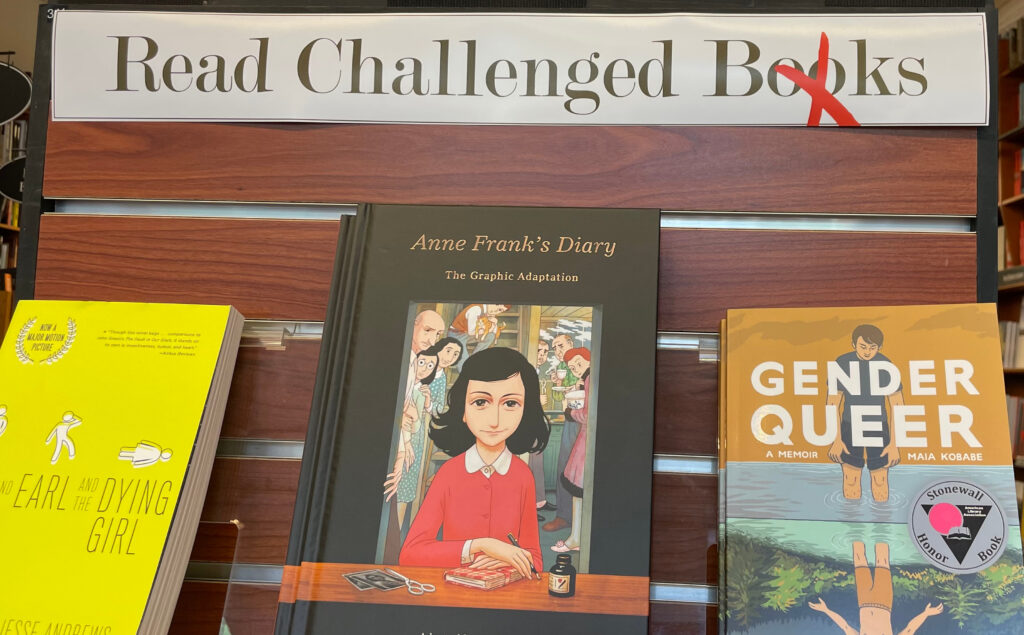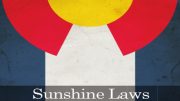By Jeffrey A. Roberts
CFOIC Executive Director
Colorado’s library-user privacy statute shields the identities of people who want public library books banned or reclassified, the Colorado Court of Appeals ruled Thursday, upholding a 2022 Gunnison County District Court decision.
The opinion from two judges on a three-judge panel of the state’s second-highest court is based on the “plain language” meaning of the term “service” in the law, which prohibits libraries from disclosing records or information that identify a person “as having requested or obtained specific materials or service or as otherwise having used the library.”

The Gunnison County Library District, Crested Butte News Editor Mark Reaman and the Colorado Freedom of Information Coalition each argued that people who ask for certain books to be banned or moved to another section of a library aren’t library “users” whose names should be redacted from “Request to Reconsider Materials” forms disclosed under the Colorado Open Records Act.
But Judge Lino Lipinsky de Orlov, writing for the Court of Appeals majority, disagreed after analyzing the words in the statute.
“The die was cast when the library district created and posted a form to allow any person to seek the removal or restriction of any item in the library’s catalogue,” he wrote. “… The requesters’ completion and submission of the library’s reconsideration forms satisfy the plain meaning of requesting or obtaining a library ‘service’ for purposes of section 24-90-119(1).”
A library official, employee or volunteer who violates the provision can be charged with a civil infraction and fined up to $300. That potential liability for library workers is one reason library district director Andrew Brookhart sought a judicial clarification of the statute after Reaman asked for unredacted copies of all “Request to Reconsider Materials” forms in early 2022.
Reaman’s CORA requests followed Crested Butte resident Rebecca White’s submission of a form calling for the removal or reclassification of Gender Queer: A Memoir by Maia Kobabe. White described the book as “pornographic,” according to the Crested Butte News, and later unsuccessfully sought criminal charges against Brookhart for allegedly violating the library-user privacy law. But the library district board did not move the book from the young-adult section following a well-attended public meeting.
Reaman, represented by attorney Rachael Johnson of the Reporters Committee for Freedom of the Press, appealed a ruling by Judge J. Steven Patrick that a library user “is not limited to someone who reads material in the library, or, checks out material.”
CFOIC filed a friend-of-the-court brief supporting Reaman, and the library district later argued in an appellate brief that “a person simply does not, and should not, have anonymity protections when they are trying to influence public policy and the decisions and resources that may be offered to the public at large by a tax funded entity, like a public library,”
But the Court of Appeals disagreed with the library district’s suggestion that providing unredacted copies of the forms under CORA would further “the principle that the people should be protected from ‘secret government.’ General principles of government transparency, no matter how noble, cannot rewrite the specific language the General Assembly chose to include in the statutes we must interpret in this appeal,” Lipinsky wrote.
There is no dispute, the opinion adds, “that the content of the reconsideration forms, without the requesters’ personal identifying information, is a public record and, therefore, should be made available to the public. We perceive no persuasive argument that the library’s objective assessment of the requests or the public good would be enhanced by revealing the identity of the requesters.”
Court of Appeals Judge Daniel Taubman wrote a dissenting opinion, concluding that the case is moot because the Gunnison County Library District “changed its position in this appeal, now agreeing that the identifying information should be disclosed, thus eliminating a case or controversy between the parties.”
Taubman wrote that he would dismiss the appeal and “vacate the district court’s judgment.”
Follow the Colorado Freedom of Information Coalition on Twitter @CoFOIC. Like CFOIC’s Facebook page. Do you appreciate the information and resources provided by CFOIC? Please consider making a tax-deductible donation.




